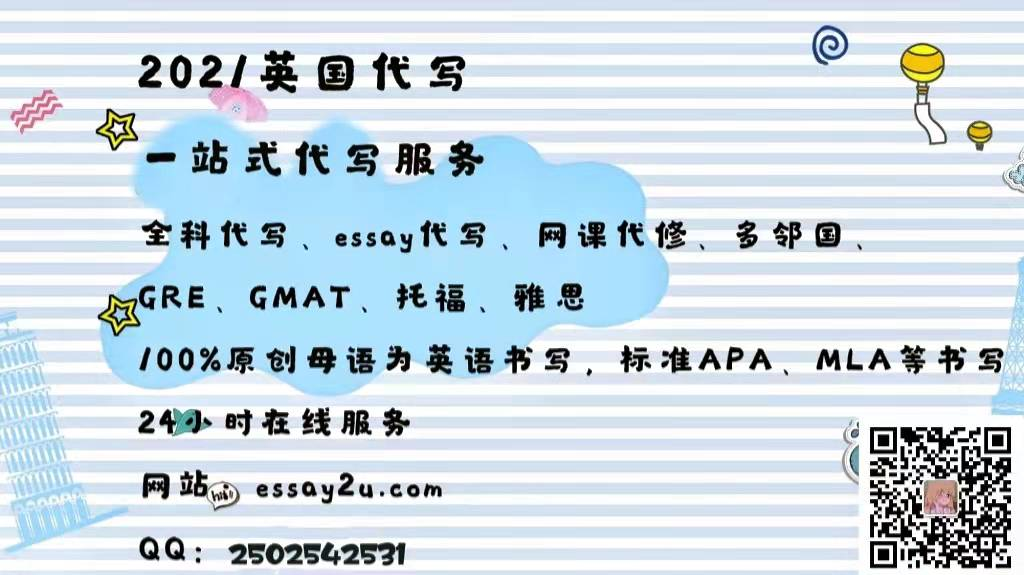POL 101: Introduction to American Government
CRN 23459 and 23460
3 credit hours
Fall 2022, TR 11:00AM – 12:15PM Combs 322
August 1, 2022- December 3, 2022
代上网课 Students will learn about the principles, functions, and basic political institutions of the American system of government at the national level.
Catalog Description of Course: Introduction to American Government. (3) I, II. Principles, functions, and basic political institutions of the American system of government at the national level. Gen. Ed. 5A or 5B
My Description of Course: Course is a discussion and exploration of the power and how it manifests in American political behavior. As such, we will be looking at institutions and methods of governance in the United States. You should take from this class an understanding that:
1)Power in the United States is dispersed through a large number of formal and informal institutions
2)Thus, power in the United States is often exercised through indirect means, not direct orders
3)And is highly reliant on consent of these dispersed power centers.
Understanding these concepts is essential to understanding how Americans govern themselves and are governed by others, and we will be discussing these points constantly in the class.
Required Readings/Materials: 代上网课
Textbook:
American Government: Power and Purpose 17th Edition
Theodore Lowi (Cornell)
Benjamin Ginsberg (Johns Hopkins)
Kenneth Shepsle (Harvard)
Stephen Ansolabehere (Harvard)
Harie Han (Johns Hopkins) 代上网课
ICBN: 978-1-324-03963-1
1008 Pages, Paperback
©2023, WW Norton Company
Review Book
A Republic No More: Big Government and the Rise of American Political Corruption
Jay Cost (Grove City College)
ISBN: 9781594037276
393 Pages, Paperback
©2016, Encounter Books
Other documents linked on Blackboard.
General Education Goals and the Course:
POL 101 is a general education course designed such that students will be able to:
- Use appropriate methods of critical thinking and quantitative reasoning to examine issues and to identify solutions. (GE Goal two)
- Analyze the historical and social contexts of cultural, economic, political, religious, and scientific developments. (GE Goal three)
- Analyze the social and behavioral influences that explain how people relate to each other, to institutions, and to communities. (GE Goal four)
- Distinguish the methods that underlie the search for knowledge in the arts, humanities, natural sciences, history, and social and behavioral sciences. (GE Goal seven)
- Integrate knowledge that will deepen their understanding of, and will inform their own choices about, issues of personal and public importance. (GE Goal eight)
Students will learn about the principles, functions, and basic political institutions of the American system of government at the national level. As part of the learning, students are required to use critical thinking to understand and evaluate democratic traditions and to better understand the importance of engaged citizenship. Students are also required to consider the historical development of American democracy and to integrate knowledge of political institutions, processes and behavior throughout the course. In doing these things, students will be instructed regarding the ways in which political scientists use qualitative and quantitative methods to study political institutions, processes and behavior.
Student Learning Outcomes: 代上网课
Students will study American government using political concepts, which provide a formal framework for public policy, political behavior and government actions and institutions. Students successfully completing this course will be able to:
- Demonstrate comprehension of the basic institutions and processes of American politics through written and oral communication. (CCR.R.1; CCR.R.2; CCR.W.2)
- Demonstrate comprehension of the role of citizens in our democracy and evaluate their own roles in the political process through written and oral communication. (CCR.R.1; CCR.R.2; CCR.W.2)
- Apply, orally and in writing, concepts in American government to examples drawn from their everyday lives. (CCR.W.2)
- Analyze orally and in written form current political events, integrate information about disparate events, and evaluate their own positions. (CCR.R.1; CCR.R.2; CCR.R.7; CCR.R.8; CCR.W.1; CCR.W.2; CCR.W.9)
-
Identify, comprehend and communicate orally and in written form selected major political developments in United States history. (CCR.R 1, 2, 7, 9, 10; CCR.W 2, 9)
- Analyze orally and in written form the ways in which contemporary American politics have been influenced by historical developments.(CCR.R 3, 7, 9, 10; CCR.W 1, 2, 4, 9)
- Evaluate primary sources as evidence for political scientists through written and oral communication. (CCR.R 1, 2, 3, 4, 6, 7, 8, 9, 10; CCR.W 1, 2, 4, 9)
- Demonstrate comprehension of the forms of political participation and measure the effects of participation by various groups through written and oral communication. (CCR.R.1; CCR.R.2; CCR.W.2; CCR.W.9)
- Explain orally and in writing the effects of social, economic, cultural, geographic and psychological factors on political ideology and political preferences. (CCR.R.1; CCR.R.2; CCR.W.1; CCR.W.2)
- Analyze orally and in written form political arguments and integrate new information in relation to those arguments. (CCR.R.1; CCR.R.2; CCR.R.3; CCR.R.4; CCR.R.9; CCR.W.1; CCR.W.2; CCR.W.9)
- Analyze and evaluate orally and in written form the impact of political choices and policies upon themselves and upon society as a whole. (CCR.R.3; CCR.W.1; CCR.W.2; CCR.W.9)
Student Learning Outcomes (Summarized): 代上网课
During this semester, students will:
1.)Learn about American Government and classic primary sources (Knowledge)
2.)Explain the importance of the various concepts and institutions (Comprehension)
3.)Use these concepts to explain political events (Application)
4.)And to provide historical and scientific context (Analysis)
5.)Assess the moral, practical, and political significance of events (Evaluation)
6.)And predict behavior in the American political context. (Synthesis)
7.)And do all of this through clear use of written and spoken language
Evaluation Methods and Course Requirements:
Students will be evaluated in four primary ways during the course: exams, a book review, participation, and attendance. The grade breakdown will be as follows:
3 exams measuring Knowledge, Comprehension, and Application
1 Final exam measuring Knowledge through Synthesis
1 Review Prewriting measuring Analysis and Evaluation
1 Book Review measuring Analysis, Evaluation, and Synthesis
Discussion Boards measuring Knowledge through Synthesis
Exams: There will be 3 exams spread across the semester at approximately the quarter marks.
The exams are take-home, and may consist of essays or short answer questions. You will have a choice in the questions you answer. I’ll grade the exam based on a point system for each question, and I will point out how you can improve answers I think are unsatisfactory (roughly: lower than a B). Those questions will then be given back to you, and you will have 1 week to revise and resubmit those questions for a higher score. 代上网课
Final Exam: The Final Exam will be taken home/online and consist of 25 multiple choice questions and 1 essay, for a total of 30 points. You may retake the exam as many times as necessary. The final exam, however, must be completed on Tuesday, May 9.
Book Review: Students will write a 5-10 page review of A Republic No More which I’m not going to give the whole subtitle because the title is fine and the practice of excessive subtitles is ridiculous; notwithstanding I did the same thing on my dissertation. All students will review the same book with a critical eye.
The book review will summarize and explain the theme of the book.
Explain the author’s position, explanation of the problems facing America, and proposed solutions. Students will then critique the argument using what they have learned in the class. The review is due April 30th, but I will allow a first draft to be turned in April 16th.
To give you something to think about and guide your reading and evaluation of the book, you will write a short (less than 3 pages) pre-review of the book. You will read the introduction and write what you think the book will be about, and what you think of the thesis at this time. You will then revisit these beliefs and see if they change when you finish the book and write the final review. Additionally, you will include a proposed reading schedule to have the book read and reviewed by April 16, 2023. This will be due February 5, 2023. 代上网课
I will review the book reviews and send them back to you with revisions. Those revisions will be due back to me by April 30th (date subject to change if I can’t get revisions back to you in 1 week).
Discussion Boards: This being an online class we don’t really have “attendance.” So, you will periodically have (roughly in any week in which nothing else is due) a full class discussion board. I will give a prompt to start the conversation, but at that point the conversation is pretty much open to you. You may respond to prompt directly, you may ask a question, or you may respond to another student. My only requirement is that you make at least 3 contributions to the discussion board during the week -one of which needs to be made before Wednesday at 11:59PM -that it be on the topic of the prompt, and that it be a substantive contribution. You may consult the rubric for more details.
The week of April 3, the topic of conversation will be the book A Republic No More. This will be a more involved discussion board. You will first be divided into groups to discuss a smaller portion of the book and get your review juices going -this will be worth 1 point. You will then have a full class discussion where you can discuss the entire book with the rest of the class -which will also be worth one point.
General: Written assignments, including take-home exams should be typed using standard fonts, sizes, and margins and printed single-sided and double spaced. Take home assignments should be turned in to Blackboard by the due assigned due date.

University Assessments: 代上网课
Last year this class was part of the Gen Ed Ungrading Pilot. Students generally did not find ungrading that helpful or hurtful to their performance, and I didn’t see much difference in grades, either. But some features were, I think, useful. One of them is the “return exams with corrections” policy from above. The other is this: at midterm and at the final I will allow you to write a Grade Assessment of your own performance. I want you to tell me where you think you are in the class, and what you think your final grade should be -regardless of what your grades on the exams are. I will still assign grades based on the above criteria, but I’m open to your argument that you are doing better than it looks (say, because you have a bad early test, but did really well later).
Student Progress: Students will be assigned a mid-term grade, as required by University policy for undergraduate classes. By the midterm you should have 1 test, the book review preview, and your discussion board participation up to that point. Midterm is March 6.
Last Date to Withdraw: March 13, 2023
Official E-mail: An official EKU e-mail is established for each registered student, each faculty member, and each staff member. All university communications sent via e-mail will be sent to this EKU e-mail address. (University Boilerplate)
Furthermore, all official e-mail should have a subject, including your class and section number (this allows me to file it for later reference if necessary). You also should use a formal salutation (Professor Howell or Dr. Howell are fine), write formally, avoid text-speak and l33t, and conclude with your name in the place of an electronic signature. This helps me organize correspondence, and it is also good practice for your career.
If you do not send properly formatted e-mails, I reserve the right to respond with cat memes.
During the week, I try to answer e-mails within 24 hours. Weekends are spottier, but I will normally respond before Monday.
Please refer to this link for the official EKU Statements on Accessibility Accommodation, Academic Integrity, and Discrimination & Harassment: https://academicaffairs.eku.edu/syllabi
Mental/Physical Wellness Resources:
Eastern Kentucky University is committed to the wellbeing of all students.
Students dealing with feelings of sadness or hopelessness, thoughts of harm or suicide, or increased anxiety may utilize the resources below or, for after-hours assistance contact:
We encourage students to contact the following on-campus services for assistance regarding emotional and physical needs:
Professor’s Note: Even if you do not feel you need accommodation in this class, if you are registered with OSID, please give me a letter. It simplifies matters later if you should need accommodation after all.
Another Way to Think about Plagiarism: 代上网课
Plagiarism is the act of using another’s words as your own, for example quoting a text in a paper without attribution. It includes having others write your papers for you and copying your paper from the web. Cheating results in at least a failing of the assignment. If you have other questions, you can see the Academic Advising section of the website or consult the instructor.
General rule: when in doubt, cite. Plagiarism is a big deal in a university. Anything you do not cite we assume is coming from your direct observations. If you don’t cite, you claim another’s observations are your own, and further attest that you have observed things which you have not observed. So if you can’t swear to the events personally, you need a citation.
But that’s not all – we want to know what you think, so even if you cite something, it is important that you incorporate another’s observations into your own thinking and writing and not simply delegate your will, analysis, and thinking to another. Be strong and secure in your beliefs, observations, and arguments! Don’t write down what someone else thinks and call it your own.
Finally, grades and feedback are for your benefit, not the instructor’s. Don’t copy or cheat by taking the work of another in the class. This degrades the value of the feedback given to you because it is not truly your work being commented upon.
Classroom Decorum: There will be time to discuss things in class and in smaller groups. A lively discussion is a good thing for learning. However, be civil. A few dos and don’ts:
Do disagree.
Do ask questions.
Do raise your hands in discussion if there is a lot of cross-talk. 代上网课
Do be honest in criticism of ideas.
Don’t be disagreeable.
Don’t insult others.
Don’t shout down others.
Don’t be cruel.
Comments which violate the University’s nondiscrimination policy are right out.
The Exceptions Clause: I reserve the right to make exceptions for any reason I deem good. I do not have to tell you what the exceptions are unless I choose to.
Course Outline: 代上网课
Section 1: American Democracy
Module 1: January 16-January 29
Section 1: The State and the Nation
Question: Ancient Wisdom on Government: Why did Greece and Rome fall?
Question: Why does the Founding Matter?
Brief History of Government, 500 BC to AD 1588
Brief History of England, 1588-1688
Brief History of the American Revolution
Required Reading:
American Government: Chapters 1 and 2
Recommended Reading:
The Politics: Book III, part VI-XII
The Republic: Book II, 369a to 375e
Machiavelli’s Letter to Vettori
Leviathan: Chapters 13-15
Second Treatise of Government: Chapters 1-10
The English Bill of Rights
Second Treatise of Government: Chapters 17-19
“The Privatization of Good” Alasdair MacIntyre
Assignments:
Introductions Discussion Board
Discussion Board: What type of government is best? (Due January 29) 代上网课
Module 2: January 30-February 12
Question: Why A Federal Republic?
Question: What Is Citizenship in a Republic?
Required Reading
American Government: Chapters 3-5
Recommended Reading:
Leviathan: Chapter 21
“Two Concepts of Liberty”
The Declaration of Independence
Federalist 9 and 10
Pro Archia Poeta
De Re Publica, Book V
“Women Against Suffrage”
Democracy in America: Vol I. Chapter 8 (Self-Interest Rightly Understood)
Democracy in America: Vol I. Chapter 15 (Tyranny of the Majority)
Assignments:
Book Preview (Due February 5)
First Section Exam (Due February 12)
Section 2: American Politics
Module 3: February 13-February 26
Question: How does anyone know anything?
Question: Is American Government Elite, Popular, or Pluralist? 代上网课
Required Reading:
American Government: Chapters 10, 13-14
Recommended Reading:
Robert A. Dahl: Critique of the Ruling Elite Model
Aaron Renn: Rediscovering the Sociology of the Elite
Upshot Article on Polling during 2016 Election
Assignments:
Discussion Board: How certain are you of your opinions? (Due February 19)
Discussion Board: Who Governs America, and how do they do it? (Due February 26)
Module 4: February 27-March 12
Question: Are Political Parties Necessary?
Question: Do Campaigns Matter?
Question: How do groups affect Policy?
Question: How do demographics affect America?
Required Reading:
American Government: Chapters 11-12
Sean Trende: “The Lost Majority”
Recommended Reading:
Edmund Burke, “Thoughts on the Cause of the Present Discontents, Part I” 1.1.3-1.1.35
Assignments:
Discussion Board: How can you get involved, effectively? (Due March 5)
Second Exam (Due March 12)
March 13-19: Spring Break
Week of September 26
Section 3: American Government
Module 5: March 20-April 2
Question: Is the Congress still the Dominant Branch?
Question: Is the President a Monarch?
Recollections of the Congress
Required Reading:
American Government: Chapters 6-7
Constitution of the United States: Preamble, Article I, Article II 代上网课
Recommended Reading:
Second Treatise of Civil Government, Chapter XI and XIV
Edmond Burke, “Speech to the Electors of Bristol”
Federalist 47 and 51
Assignments:
Discussion Board: Should we be worried about Congressional Disfunction? (Due March 26)
Discussion Board: Is the President too powerful? (Due April 2)
Module 6: April 3-April 16
Question: What is the proper role of the courts?
Required Reading:
American Government: Chapter 9
The Constitution of the United States: Article III, VII, and Amendments I-XXII
Recommended Reading:
Uncommon Knowledge Interview with Antonin Scalia/Scalia and Breyer Debate
4th/5th Amendment Videos
The Federalist 78
Democracy in America, Vol I, Chapter 6
Assignments:
Discussion Board: Is America a Republic anymore? (Two part discussion, Due April 9)
Third Exam: Due April 16.
Book Review First Draft: April 16
Section 4: Policy
Module 7: April 17-May 7
Question: What is the proper role of the bureaucracy? 代上网课
Question: What is American Foreign Policy?
Required Reading:
American Government: Chapter 8, 15-17
Recommended Reading:
James Q. Wilson “The Problem of Bureaucracy”
“Meritocracy and its Discontents”
Walter Russell Mead, “The Jacksonian Tradition in American Foreign Policy”
Final Exam: May 9th.
Final Exam made available on May 1, and must be turned in by 11:59PM on May 9th.
Syllabus Subject to Change as Events Merit
更多代写:管理学代考 gre考试作弊 考试代考 法学Law Essay代写 大學論文代寫 心理学作业代写
合作平台:essay代写 论文代写 写手招聘 英国留学生代写



